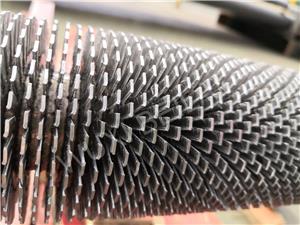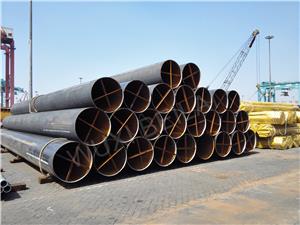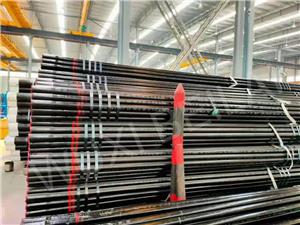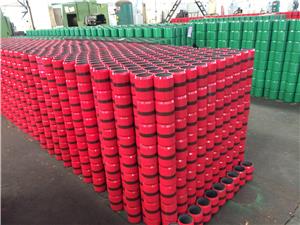What Is Alloy Steel Pipe?
From the oil and gas industry to power plants, alloy steel pipe fulfils its function.Belay specialises in manufacturing and supplying high quality Alloy Steel Pipes to meet the specific specifications of our clients.
What Is Alloy Steel?
Alloy steel refers to steel that is alloyed with one or more elements to improve its properties beyond those inherent in plain carbon steel. These alloying elements can include chromium, nickel, molybdenum, vanadium, manganese, silicon, and others, depending on the desired characteristics. The purpose of alloying steel is to enhance its strength, toughness, hardness, resistance to wear, corrosion, and other performance factors.
Alloy steels are categorized based on the type and amount of alloying elements they contain:
Low-Alloy Steels:These steels contain a small percentage (typically less than 5%) of alloying elements. They offer improved strength and hardness compared to carbon steel but maintain a relatively low cost.
High-Alloy Steels:These steels contain a larger percentage (greater than 5%) of alloying elements and offer enhanced properties such as corrosion resistance, heat resistance, and wear resistance. Stainless steel is a well-known example of high-alloy steel.
What Is an Alloy Steel Pipe?
An alloy steel pipe is a type of pipe made from alloy steel, where the material is formulated to withstand challenging operating conditions. The pipes are produced in a variety of sizes and shapes and are widely used in industries that require high-performance materials for transporting fluids, gases, and other substances under pressure.
Alloy steel pipes have unique properties due to the specific combination of elements used in the alloy. These pipes are designed to meet high standards for strength, heat resistance, corrosion resistance, and mechanical performance. Depending on the alloying elements and the processing techniques, alloy steel pipes can be made to endure extreme pressures, temperatures, and harsh environments, making them ideal for heavy-duty applications.
Composition of Alloy Steel Pipes
The main difference between alloy steel pipes and regular steel pipes lies in the chemical composition. Alloy steel pipes contain added alloying elements, which enhance their properties. Some of the key alloying elements and their effects on the steel include:
Chromium (Cr):Chromium increases the hardness, toughness, and corrosion resistance of the steel, particularly at high temperatures. It also contributes to resistance to oxidation and scaling in high-heat environments.
Molybdenum (Mo):Molybdenum enhances the steel’s strength at high temperatures, making it ideal for pressure vessels and pipes used in power generation and chemical industries. It also improves resistance to corrosion.
Nickel (Ni):Nickel is added to improve toughness and resistance to cryogenic temperatures. It also provides better resistance to corrosion and oxidation, especially in high-stress environments.
Vanadium (V):Vanadium increases the strength and fatigue resistance of the steel. It also refines the grain structure of the steel, improving its toughness.
Manganese (Mn):Manganese helps increase the toughness and strength of the steel, particularly at elevated temperatures.
Silicon (Si):Silicon is often used to deoxidize steel and enhances its strength, especially in high-temperature applications.
The exact composition of alloy steel pipes can vary depending on the intended application and the type of alloy. For instance, pipes used in high-temperature environments might contain higher levels of chromium and molybdenum, while pipes used for low-temperature applications may contain more nickel.
Types of Alloy Steel Pipes
Alloy steel pipes are available in various grades and classifications, each designed for specific applications. Some of the common types include:
1. ASTM A335 Alloy Steel Pipes
This is one of the most common specifications for alloy steel pipes used in high-temperature service. ASTM A335 pipes are typically made from ferritic alloy steel and are commonly used in power plants, boilers, and other high-temperature industrial applications. Grades like P5, P9, P11, and P91 are widely used in this category.
2. ASTM A213 Alloy Steel Tubes
While similar to ASTM A335, ASTM A213 covers the specifications for seamless alloy steel tubes rather than pipes. These tubes are typically used in heat exchangers, superheaters, and other applications where high pressure and temperature resistance are required.
3. ASTM A106 Carbon Steel Pipes (with Alloying Elements)
Some pipes, such as ASTM A106 pipes, are primarily carbon steel but may contain small amounts of alloying elements, making them a hybrid of carbon and alloy steel. These pipes are often used in general industrial applications.
4. Stainless Steel Alloy Pipes
Stainless steel is a high-alloy material containing at least 10.5% chromium and other elements like nickel, molybdenum, and manganese. Stainless steel pipes are widely used in industries requiring corrosion resistance, such as food processing, pharmaceuticals, and chemical industries.
5. High-Pressure Alloy Steel Pipes
These pipes are specifically designed to handle extremely high pressure and temperature conditions. High-alloy steels, such as those containing large amounts of chromium and molybdenum, are often used for these applications.
Applications of Alloy Steel Pipes
Due to their exceptional mechanical properties, alloy steel pipes are used in a wide range of industries. Some of the most common applications include:
1. Oil and Gas Industry:
Alloy steel pipes are used extensively in the oil and gas industry for transporting hydrocarbons under high pressure and temperature. These pipes are used in both upstream (exploration and extraction) and downstream (refining and processing) applications.
2. Power Generation:
In power plants, alloy steel pipes are used to transport steam and hot gases, especially in boilers, superheaters, and heat exchangers. These pipes are designed to handle extreme temperatures and pressures without failing.
3. Chemical and Petrochemical Industries:
Alloy steel pipes are widely used in chemical and petrochemical facilities, where they are used to carry corrosive chemicals and fluids under high pressure. Their corrosion resistance and ability to withstand high temperatures make them ideal for such applications.
4. Water Treatment Plants:
Alloy steel pipes are often used in water treatment plants for transporting water and other fluids. They are especially suitable for high-pressure applications such as water mains, as well as in desalination plants.
5. Automotive and Aerospace:
In the automotive and aerospace industries, alloy steel pipes are used for critical applications, such as fuel lines, hydraulic systems, and exhaust systems. The pipes’ strength and durability make them suitable for the high-stress environments found in these industries.
6. Mining and Construction:
Alloy steel pipes are used in mining operations and construction projects, where they can be exposed to abrasive materials, high pressures, and extreme conditions.
The superior properties of alloy steel tubes make them indispensable in oil and gas, power generation, chemical processing, water treatment, and many other fields.If you're looking for high-quality alloy steel tubes for your industrial applications, contact Bellaire today.Our experts are ready to assist you in selecting the perfect solution to meet your needs and ensure the success of your project.




